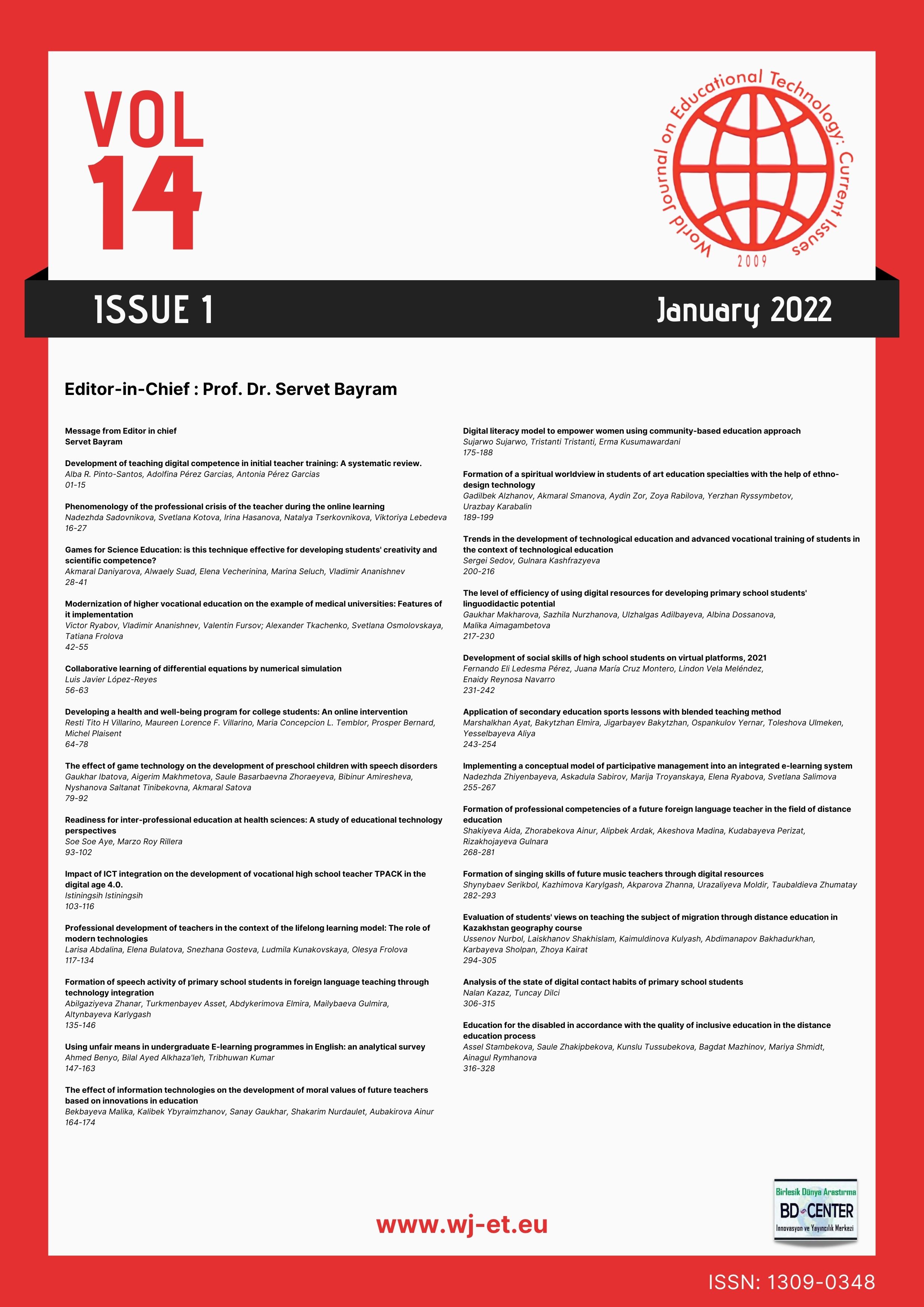Evaluation of students' views on teaching the subject of migration through distance education in Kazakhstan geography course
Main Article Content
Abstract
The aim of this study is to determine the important and methodological aspect of examining the population migration patterns of distance education and university students' geography course. 420 university students who continue their education in Kazakhstan participated in the research in the spring term of 2020-2021. Scanning method was used in the research. In the research, a measurement tool called the general opinion measurement tool for the geography lesson, which was developed by the researchers and collected by taking expert opinion in the field of geography, was used. In the research, a 4-week online seminar was organized to increase the views of university students about the geography lesson, and training was given over Microsoft Teams, the interview form was collected with electronic forms after the seminar. The collected data were analyzed using spss program. According to the results of the study, it was concluded that university students' inclination to geography course is higher than male students, university students are familiar with the system for 1-3 years, their inclination to distance education systems is high and population migration patterns are learned well with this system.
Keywords: University Student, Distance Education, Geography ,Lesson, Kazakhstan;
Downloads
Article Details

This work is licensed under a Creative Commons Attribution 4.0 International License.
World Journal on Educational Technology: Current Issues is an Open Access Journal. The copyright holder is the author/s. Licensee Birlesik Dunya Yenilik Arastirma ve Yayincilik Merkezi, North Nicosia, Cyprus. All articles can be downloaded free of charge. Articles published in the Journal are Open-Access articles distributed under CC-BY license [Attribution 4.0 International (CC BY 4.0)].
Birlesik Dunya Yenilik Arastirma ve Yayincilik Merkezi (BD-Center)is a gold open-access publisher. At the point of publication, all articles from our portfolio of journals are immediately and permanently accessible online free of charge. BD-Center articles are published under the CC-BY license [Attribution 4.0 International (CC BY 4.0)], which permits unrestricted use, distribution, and reproduction in any medium, provided the original authors and the source are credited.
